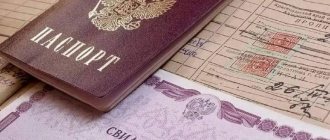The Constitutional Court (CC) of the Russian Federation obliged medical institutions to provide relatives of the deceased with information about the progress of treatment. This happened thanks to the struggle of Rimma Svechnikova from the Kirov region, whose husband died of cancer in 2021. The widow decided that the cause of death was improper treatment and asked the hospital management to give her her husband’s medical documents. She was refused, citing medical confidentiality.
about how they managed to achieve a legal precedent and what to do if doctors do not give the medical history to relatives after death.
Photo: Kirill Kukhmar/TASS
“Even during his lifetime, he entrusted his wife with this right”
Rimma Svechnikova’s husband, 70-year-old Evgeny Svechnikov, was hospitalized at the Kirov Research Institute of Hematology and Blood Transfusion in 2016, where he was diagnosed with chronic lymphocytic leukemia and prescribed chemotherapy. After two courses, the man went to Israel for a consultation, and upon his return continued treatment at the research institute. He then traveled again to Israel, where he died in March 2021.
Lawyer Ekaterina Baturina said that at the research institute Evgeniy received chemotherapy with contraindications, and the second time without any indication at all. “This killed the patient’s immunity, after which the infection began to develop,” she explained. “In fact, the patient’s fate was predetermined. Russian professors in criminal matters and Israeli specialists are in solidarity on this.”
In fact, the patient's fate was sealed
Svechnikov’s family was embarrassed by the fact that Kirov doctors asked to formalize a refusal of treatment in exchange for extracts for treatment in Israel. At the same time, according to the lawyer, the doctors themselves admitted during the last hospitalization that they could not offer anything to the patient and the relatives needed to take him home. When the family decided to understand in more detail how the treatment was carried out, they asked the institute’s management to give them Svechnikov’s medical card. But they refused to give the documents to his widow.
Then Rimma Svechnikova filed a lawsuit in the Leninsky District Court of Kirov to challenge the doctors’ refusal to issue a medical card. In parallel with this, the family wrote a statement to the Investigative Committee and an appeal to the prosecutor's office. Investigators opened a criminal case under Part 2 of Article 109 of the Criminal Code of the Russian Federation (causing death by negligence).
As a result, it turned out to be a vicious circle: the prosecutor’s office sent Rimma Svechnikova to court, the court to the investigative authorities, and the investigation completely refused to acquaint her with the documents. The lawyer noted that the handwriting examination of the Russian FSB Directorate for the Kirov Region and specialized experts came to the conclusion that while the investigation was confiscating the documents and not giving them to Svechnikova, changes were made to them: corrections, inserts, additions, as well as other people’s signatures.
The criminal case continues to be considered, more than 30 court hearings were held (under Part 2 of Article 238 of the Criminal Code of the Russian Federation), but courts of all instances refused to issue documents to the relatives. Baturina said that she decided, in case of refusal, to appeal to the Constitutional Court even before the court of first instance made a decision.
“Constitutional proceedings have their own specifics: you need to clearly understand the essence of the issue. Although from the point of view of any person it is clear why Svechnikova, having lived with her husband in marriage for almost 50 years, caring for him for two months until his death, should receive his medical documents, the lawyer emphasized. “Even during his lifetime, Evgeniy entrusted her with such a right, so what should be the secret for her now?”
Preparatory stage
Timing and consequences of untimely deregistration If a citizen turns up and discovers that he has been declared dead, he can restore his rights by going to court and canceling the previous decision. He will also be able to restore the registration, as well as the ownership of the apartment, even if the property has been sold.
In the event of death at home (at a party, at the dacha), you need to call both the local doctor (during the day) or an ambulance (after hours/at night) and the police. It is necessary to prepare the passport and medical insurance of the deceased, as well as the passports of persons who were nearby at the time of death. After calling emergency services you need to:
The principle of kinship is more important than the principle of secrecy
The lawyer believes that the principle of kinship is more important than the principle of secrecy. “The Constitutional Court has repeatedly pointed out the “special role of the family in the development of the individual, satisfying his spiritual needs” in its “traditional understanding, received from ancestors,” notes Baturina. At the same time, according to the lawyer, Svechnikova was deprived of such an opportunity.
Baturina said that in international legislation (CIS countries, England, Germany, France, part of the US states, Australia and others) there is a “presumption of patient consent” to the disclosure of medical confidentiality, but in Russia it did not exist until recently.
Paperwork and other actions
It is necessary to understand what exactly needs to be done first, and what can wait. It is important to perform all actions in a certain order. Without the appropriate papers issued by one organization, it is impossible to obtain services from another.
In the first days
When the body is delivered to the morgue, you need to go there to obtain a death certificate, for this you must provide:
- outpatient card of the deceased (can be obtained at the clinic);
- passports of the applicant and the deceased;
- compulsory medical insurance policy of the deceased.
Based on this, a death certificate is issued. It indicates the name, date of death and reason. The certificate must also bear the seal of the medical organization. Next, you need to contact the registry office or MFC with this certificate. You are required to have your passport with you.
You will need to do the following to obtain a death certificate:
- fill out an application in the prescribed form;
- provide identification documents for yourself and the deceased;
- wait for the review (carried out in the presence of the applicant) and receive the necessary document.
Having the main document in hand - a death certificate, you need to carry out the following actions:
- contact the employees of the funeral agency to order all the necessary attributes for burial, as well as purchase a place in the cemetery (if the death occurred as a result of violent acts, then you must obtain permission for burial from the police department, and until that time the body is being examined by forensic medical examiners) ;
- organize transportation of the body to the place of burial if the death occurred in another city. In this case, the certificate must be obtained from the hospital where the corpse was brought.
To carry out the burial, you must have all the necessary documents on hand:
- protocol for examining the body by police officers;
- a certificate from the hospital or from the ambulance team;
- death certificate;
- certificate for receiving funeral benefits (issued at the registry office);
- agreement with a funeral agency.
These are the main actions that must be performed in the first days after the death of a close relative.
It is worth understanding that the passport of the deceased is confiscated. It is transferred by the registry office employees to the department of the Main Department of Migration Affairs of the Ministry of Internal Affairs at the last place of registration of the deceased independently.
How much does burial work cost - digging, installation/dismantling of the tombstone and fence?
The open cemetery space itself is free, and any attempt to sell it is illegal.
You need to pay at the time of burial for the following work:
- digging a grave during burial in a related grave. Digging a grave in case of ordering a free funeral according to a guaranteed list of services and goods for burial is free. When buried in a related grave, the cost of digging a grave is about 10,000 rubles (a little less in summer, a little more in winter);
- installation/dismantling of tombstones, crosses, fences, cutting down trees, etc. The cost of this work depends on the composition and complexity of the services and can cost several tens of thousands of rubles.
Where does the passport go after death?
- There is suspicion of violent death.
- It is impossible to establish the cause of the incident.
- The deceased was in the hospital for less than a day.
- There is a suspicion of an overdose of drugs or an allergic reaction to them.
- Death is associated with medical procedures.
- The patient had an infectious disease or suspected infection.
- The cause of death is related to an environmental disaster.
- A woman died during childbirth or immediately after, as well as a pregnant woman.
- The child died before 28 days of life or was born dead.
- We need a forensic examination.
In the event of the death of a working person or a minor child, relatives receive a benefit in the amount of 5,946 rubles. 47 kopecks. Payments are made either at the place of work of the deceased or at the place of work of one of the child’s parents.
Social benefit for funeral (read more...)
How to prepare for a funeral
A man died
Funeral agents often appear after your call to the ambulance, even before the police and doctors. Many take advantage of the stressful state of the deceased’s loved ones, put pressure on them and demand that they sign documents immediately. You should not act in a state of acute grief. You are not obliged to use the services of agents and can organize everything yourself. In any case, it is better for you to sit down and study the funeral services market on your own or ask your friends to do it. It may be too difficult for you to organize a funeral and you will need friendly support or psychological help.
Organize a farewell ceremony
The ritual includes several stages, and the choice of specific ceremonies depends on the wishes of the family - for example, whether they want to carry out any religious rituals or not, what denomination they belong to. Typically there are three stages:
— farewell (for example, a civil memorial service in a rented ritual hall at the morgue or a funeral service in a temple);
- burial;
- wake.
It is important to decide in advance how, when and where each stage of the ceremony will take place, and to inform the relatives, friends and colleagues of the deceased about this. You need to think about transport in advance - rent a hearse and a hearse bus to transport the coffin and those saying goodbye. With the wake, you need to decide whether it will take place at home or in a cafe. In the latter case, you need to rent a place for the funeral.
Leave due to the death of a relative according to the Labor Code of the Russian Federation
Leave based on the death of a relative is issued under Article 128 of the Labor Code of the Russian Federation. The code does not provide an exact list of relatives in connection with whose funeral the employee is relieved of his work duties. Who is considered close relatives? The answer to this question is contained in Articles 2 and 14 of the RF IC. In particular, these are:
- Husband or wife.
- Natural or adoptive parents.
- Native and adopted children.
- Grandmothers and grandfathers.
- Grandchildren.
- Full and free brothers/sisters.
FOR YOUR INFORMATION! Is a worker entitled to leave in connection with the burial of a relative who is not close, or a person with whom there is no relationship? From a legal point of view, no. However, the employer has the right to grant leave on his own initiative. In this case, a corresponding internal act is drawn up.
Be careful - scammers are on the move
Remember, if you let in uninvited illegal ritual agents, you will become their victim and the scammers, using special psychological techniques, will force you to overpay or pay for services that should be provided free of charge, or they will take the money and not organize anything, leaving you with grief and all the paperwork alone.
Do not become a victim at the hands of black agents, but trust the professionals from the MosGupRitual agency, who will take care of organizing the burial, wake and other farewell events after the death of your loved one, as well as advise and help in completing all the documentation as soon as possible. Call us, we work 24 hours a day, seven days a week.
Do I need to hire a funeral agent?
Disabled members of the deceased's family who were his dependents may qualify for a survivor's pension.
But you can apply to the Pension Fund or MFC for its appointment later. If the deceased had a loan under which a life insurance contract was concluded, the bank will have to send a claim to the insurance company for payment of insurance compensation, which can fully pay off the balance of the loan. Further communication with the bank will take place with the heirs of the deceased.
What to do if a person dies at home
Call emergency services by calling 02 (102) and 03 (103) or by calling the single emergency number 112. After calling emergency services, call a funeral agent from the city's specialized funeral service.
You can call an agent of the city specialized service Ritual.ru by calling +7 (495) 100-3-100. If you have not chosen a reliable funeral service in advance, we recommend that you read the memo “How to accurately choose a funeral agency.”
The ambulance will record the fact of death and send the body to the morgue. Also, emergency personnel can provide first aid and save a person who, as it seemed to his relatives, has already died.
Specialists from the city's specialized funeral service will advise relatives of the deceased on funeral issues and protect them from scammers (black agents).
Important!
- Transportation of the deceased to the morgue is carried out free of charge by the city service.
- If you are organizing the funeral yourself, be sure to find out and write down which morgue the body will be delivered to.
Turnkey funeral
Transporting the deceased to the morgue
If a person died at home, immediately after death the relatives need to call an ambulance and the police. Upon arrival, the staff will inspect the body and provide several documents that will be required later when organizing the funeral. Emergency doctors write out inspection and death certificates, and law enforcement officers write out a body examination protocol.
If the police have doubts about the cause of death, the deceased may be taken for a forensic examination. If a violent death is discovered, a criminal case will be initiated. If a person dies naturally, a decision is made to refuse to initiate a case. In any case, the body can be collected only with written permission from the prosecutor's office or police.






